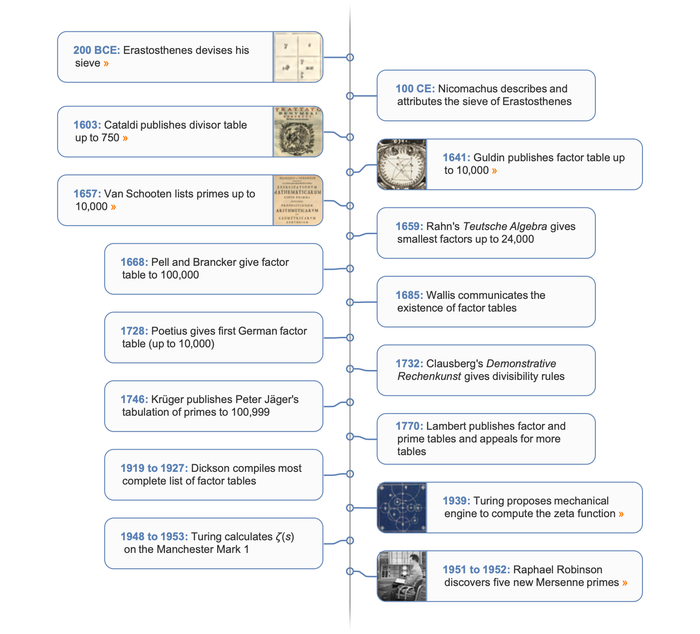Funding for this project generously provided by Overdeck Family Foundation
Primes
A prime number is a positive integer having exactly one positive divisor other than 1. Prime numbers are therefore the building blocks of counting numbers and were studied as early as 250 BCE. In modern times, the study of the distribution of prime numbers has led to some of the most beautiful and famous results in mathematics, large primes play an important role in encryption and the search for ever-bigger primes continues to challenge the limits of advanced and distributed computing.
-

around 200 BCE
The Sieve of Eratosthenes
Finding the primes by crossing out everything that isn’t
-

1603
Cataldi's Divisor Table
Oldest divisor table, giving divisors for numbers up to 750
-

1641
Guldin's Factor Table
One of the oldest factor tables, giving factorizations up to 10,000
-

1657
Van Schooten's Prime Table
Prime table up to 10,000
-

1952
SWAC Computes New Mersenne Primes
Five new Mersenne primes
-

1939
Turing's Zeta Function Machine
Riemann zeta cogs
Timeline
